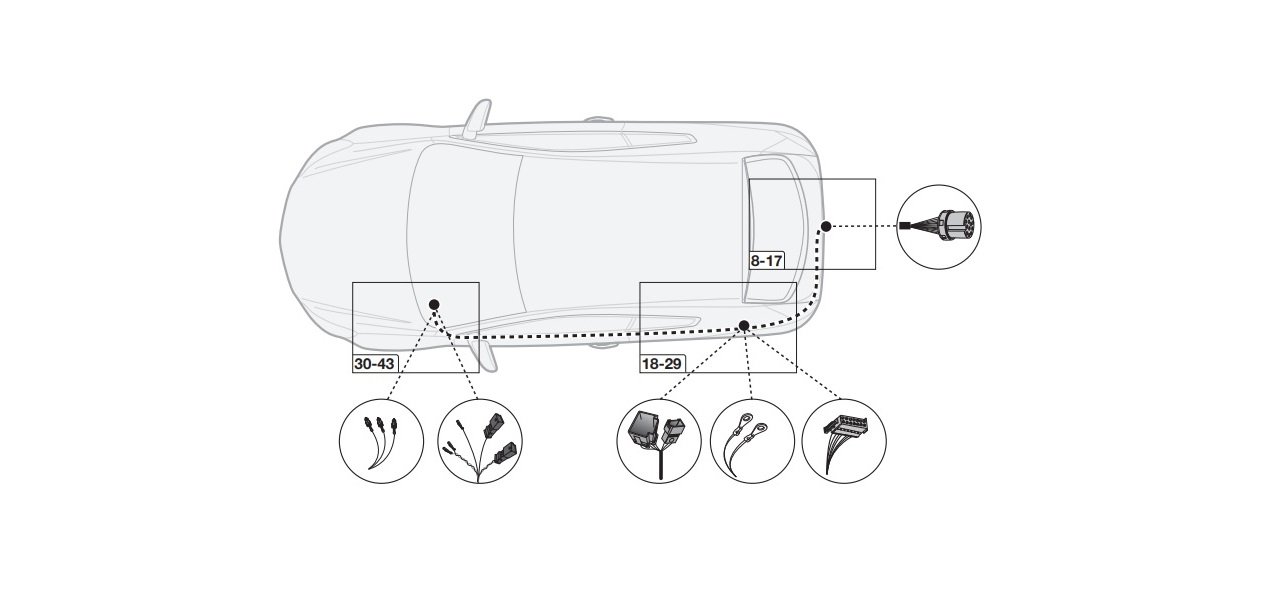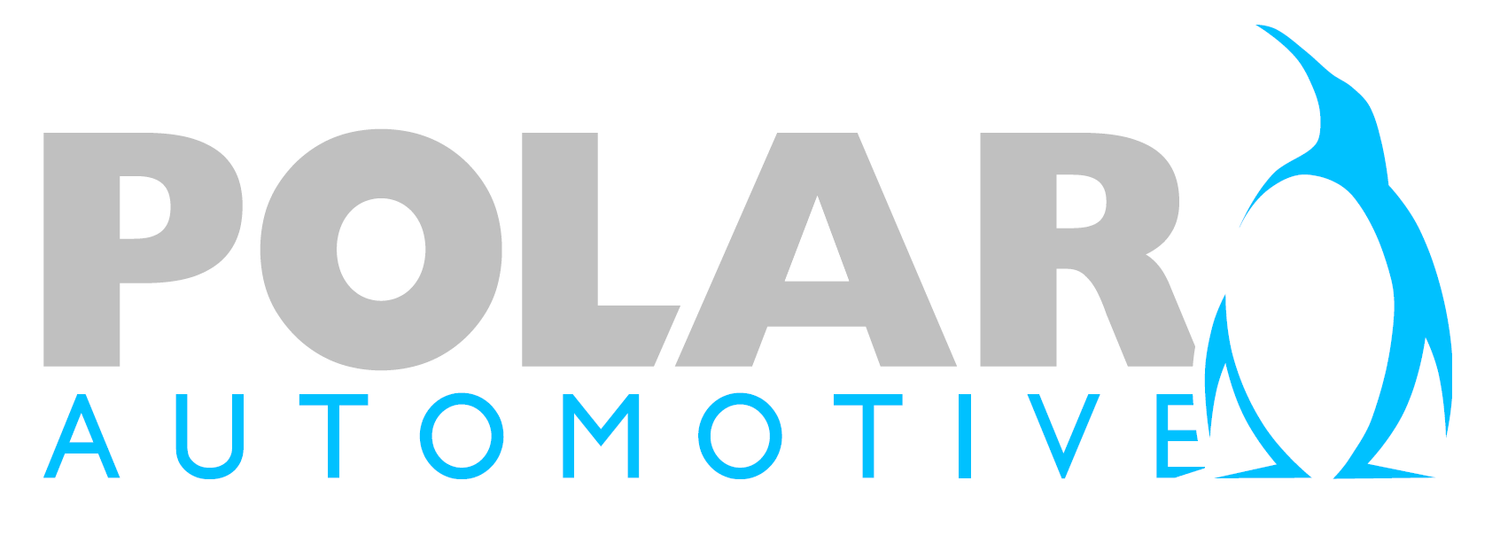Wiring Options:
-

Universal / Generic
Any of the socket options below can be wired in to your vehicle in two different ways: Universal wiring or Dedicated wiring.
Universal is the traditional norm for towing electrics, it works by taking a small current signal from the vehicle’s lights to trigger a relay and send a direct power supply to the towing socket. It does not communicate with the vehicle and will not activate any safety or convenience systems. It does however isolate the trailer wiring from that of the towing vehicle, thus protecting the car’s wiring from damage should the wiring in the trailer (or cycle carrier) malfunction. It is a tried and tested system in very wide use. Bypass systems are found both in universal (non vehicle-dedicated) systems and in dedicated and OEM (original equipment manufacturer) systems.
In older cars you could simply connect the wiring from the rear lights to the tow bar socket, meaning the trailer lights would run on the same circuit as the light cluster on the car. Nowadays a Smart Bypass is required in order to avoid pulling power from the vehicles own lighting circuits, to avoid bringing up error messages because the car has detected a drain on the lighting circuits.
Pros: Cheaper, Smart bypass modules are widely available (in event of a failure it can be replaced by any towbar centre without sending away for a new module).
Cons: Vehicle is unaware, thus cannot apply advanced towing functionality (bulb warning is an audible buzzer, no trailer stability operation). No vehicle software re-coding required.
-

Dedicated / Vehicle-Specific
Any of the socket options below can be wired in to your vehicle in two different ways: Universal wiring or Dedicated wiring.
Dedicated wiring came about with the introduction of CANbus systems, whereby there is a computer and local network within the vehicle controlling all components, rather than analogue wires to each individual component. These kits connect into that network and are therefore integrated with the vehicle’s systems, enabling advance functionality.
For most older vehicles universal wiring is still the preferred choice given the higher cost of dedicated, however for many vehicles it is advisable to choose the latter especially if towing larger items. These include:
1. Vehicles with advanced towing/safety features, towing trailers or caravans e.g. TSP* or ACC** (see explanation below); 2. Vehicles still under warranty (new and high value vehicles); 3. Vehicles on which the dedicated wiring kit saves labour time or is inexpensive.
Please note: With dedicated wiring some vehicles require re-coding at the dealer in order to activate TSP and PDC/Fog light cut-off (where present) – in the vast majority of cases we can do this in-house.
Pros: Enables towing features the vehicle has. Usually plugs-in rather than clipping onto existing wiring, integrates to vehicles own systems (e.g. bulb warning on dashboard).
Cons: Usually more costly, sometimes longer to fit, replacement modules need to be sent-away for thus cannot be fixed as quickly in event of a problem.

-

Single 7-PIN (12N)
Provides driving lights, except for reverse. i.e. sidelights, indicators, brake & fog lights. This is the cheapest option and is sufficient for cycle carriers, trailers and some caravan users (who do not require reverse lights or the supplementary 12S functions outlined below).
-

Twin 7-PIN (12N+12S)
Includes a single 7-PIN (12N) socket plus addition of 12S white socket – mainly used when towing caravans or machinery/equipment. The 12S socket includes a permanent 12v power supply and a switched 12v power supply for the fridge, interior lights and auxiliary battery, it also contains a feed for the reverse lights.
-

13-PIN
This is the ISO standard socket fitted to all new UK caravans sold from 2009, it covers all the functions of both the twin (12N and 12S) sockets. Designed to be waterproof, easy to fit/remove (twist operation for a tighter connection). Preferable for 12S functions with detachable towbars, as having two sockets on swivel-mounts can be sub-optimal as one side gets in the way of the detachable handle.
Muddy Waters of 7-PIN vs 13-PIN - Full function or Not?
As the modern ISO standard socket, over time more products including trailers and bike racks are sold with 13-PIN plugs, even if they do not require 12S functions (reverse light, & constant/switched power). Therefore we can fit 13-PIN sockets with only the 12N functions connected, in order to avoid the cost of fitting functions you do not require, or you may wish to have full-function fitted to future-proof yourself (on some vehicles the cost difference is only £20-50, whereas on others it can be significantly more).
To decide whether you need full function, first establish what items you wish to tow, and what type of plugs they have on them (7-PIN or 13-PIN). If it’s 13-PIN, then do those items need a reverse light, and/or constant and switched power feeds? If not then you could just have 7-PIN functions with a 13-PIN socket. Keep in mind adapters are also available, so you can plug a 7-PIN plug into a 13-PIN socket, but an adapter cannot extract 13-PIN functions from a 7-PIN socket (because only the 7-PIN functions have been connected between the vehicle and the socket).
Glossary:
* Trailer Stability Program (to help reduce the ‘snaking’ tendency of a trailer).
** Adaptive Cruise Control (increases breaking distance between vehicles when towing).
PDC - Parking Distance Control (i.e. parking sensors).
